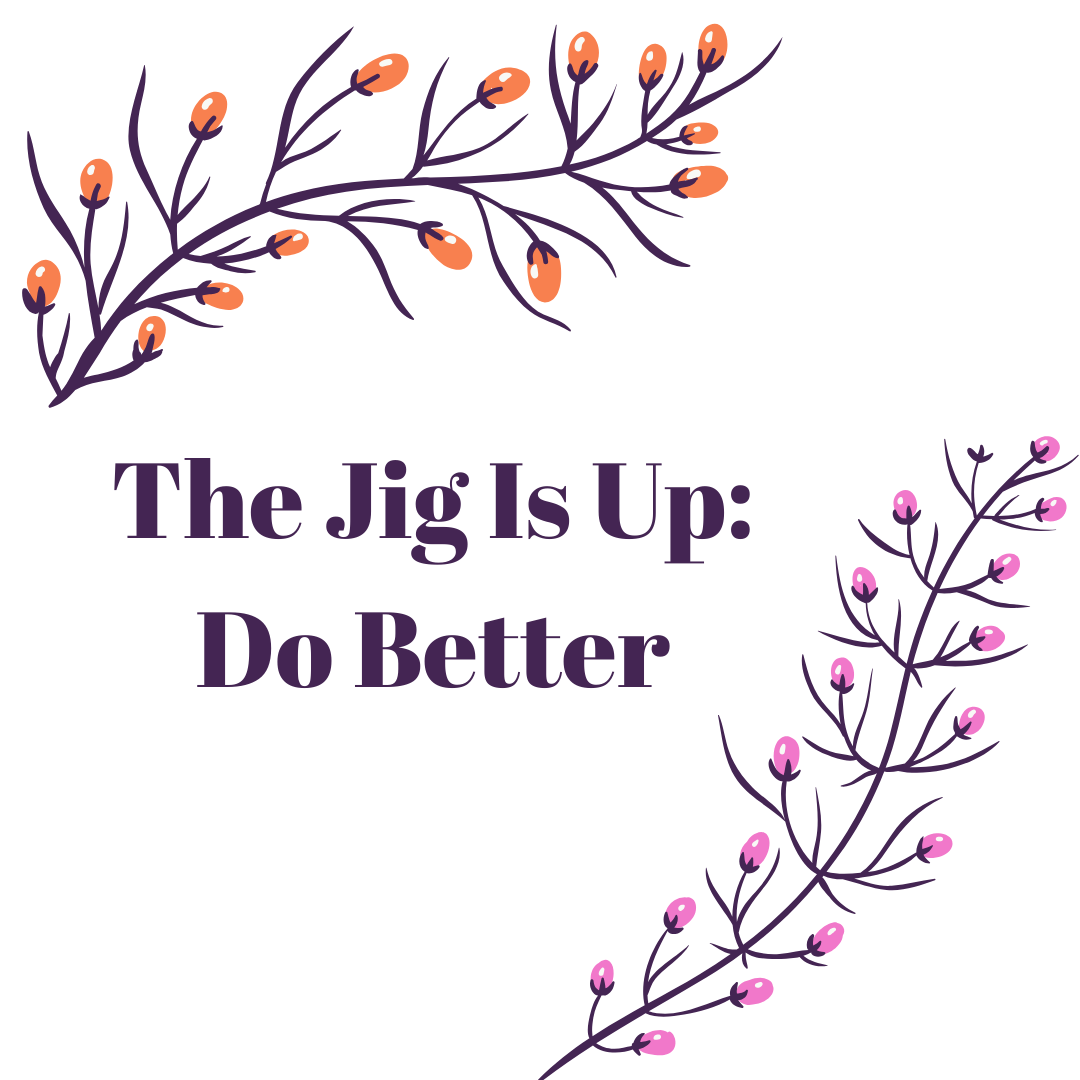The Jig is Up: Do Better
The Jig is Up

by Emoonah McClerklin
Radical feminist theory is becoming mainstream and, therefore, more acceptable. It’s now popular to read Toni Morrison and bell hooks, or to use the word “intersectional” in a sentence (whether or not it’s used correctly). Feminist theory and literature are becoming more accessible outside academia, which is good. But with this accessibility comes a kind of performative feminism—a watered-down version that allows cis men to play “feminist” without actually doing the work of transforming themselves and their relationships with women. They get to sound educated and progressive as they regurgitate radical frameworks, but still benefit from all the trappings of patriarchy. And it’s pissing me the fuck off.
Rooted in the work of radical feminist theory is a call to action. It tells readers, “this is wrong, now fix it.” It is meant to call into question all the ways our society revolves around men. All the ways we, as human beings, contribute to the patriarchy that harms us. It gives us (women) a framework to discuss our lives and how cis men harm us. When cis men learn this framework, they are able to get a glimpse into what oppression can be like for us. This is useful to bridge a cultural gap between womanhood and cisgender manhood, one that comes from the oppression of patriarchy.
However, bridging that gap is only half the battle. Cis men, from the moment they pop out the womb, benefit from patriarchy. All their friendships, careers, conversations, and interactions are influenced by patriarchy. Whether or not they realize it, in every interaction they have with people of other genders, they have access to societal power that privileges their wellbeing over all others. Even if racism distributes privileges between men of color and white men unequally, they share a sense of entitlement when it comes to women. Their mistakes can have lasting consequences for the women (and other gendered people) in their lives. This is why learning radical feminist framework is not enough. Cisgender men must be willing to DO. THE. WORK. They must be willing to examine their relationships with women, understand how their power influences others, be able to see how women go out of their way to placate masculinity, SO WE DON’T HAVE TO DO THAT ANYMORE.
Time and time again, as we all struggle to deal with the reality of the COVID-19 pandemic, I have seen the women in my life struggle with cis men, many of whom call themselves feminist. I have seen them placate, validate, justify, excuse, ignore all the things cis men do to them, because they know—and fear—the consequences of holding these men accountable. The stress of the pandemic puts more work on women, because we not only have to navigate stress for ourselves, but the stress of the men in our lives who, though they claim to be feminist, still rely on women to do emotional work for them. These men know better. But they do not have to do better because patriarchy does not demand them to.
In 2020, my New Year’s resolution is to set the bar higher for the cis men in my life. No longer will cis men be able to call themselves a feminist for owning a Toni Morrison book. No longer will I let cis men be comfortable spouting feminist theory, when I know they are not putting this theory into practice. I am fed the absolute fuck up. Cis men must treat the women in their lives better. Cis men must stop letting their insecurities create consequences for the women they love. Quite honestly, cis men need to learn to be quiet. They should teach themselves not to be the first to speak. They should teach themselves to allow conversations where they are not heard and where they learn how to listen. They need to do better. And men who do not meet these qualifications are no longer feminists in my book. Point. Blank. Periodt!